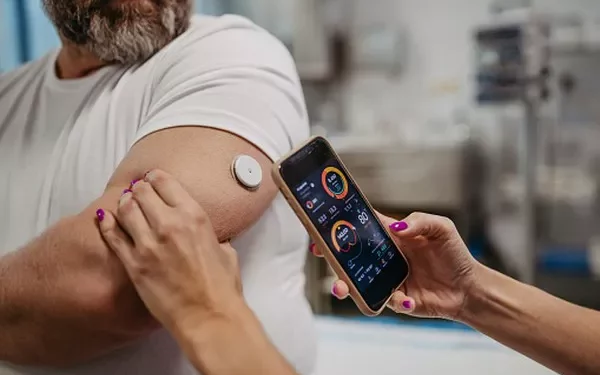Diabetes mellitus, particularly type 2 diabetes, is a chronic condition characterized by elevated blood glucose levels resulting from insulin resistance or insufficient insulin production. Effective management of diabetes involves a combination of medication, lifestyle changes, and dietary modifications. This article focuses on the various factors that diabetic patients should avoid to maintain optimal health and prevent complications.
High Glycemic Index Foods
The glycemic index (GI) measures how quickly carbohydrates in food raise blood glucose levels. Foods with a high GI cause rapid spikes in blood sugar, which can be particularly harmful for individuals with diabetes. Diabetic patients should avoid or limit the intake of high GI foods such as:
- Sugary Beverages: Soda, sweetened tea, fruit juices, and energy drinks are loaded with sugars that cause immediate blood sugar spikes.
- Refined Grains: White bread, white rice, and pasta made from refined flour lack fiber and nutrients, leading to quick glucose absorption.
- Processed Snacks: Items like chips, crackers, and pastries are often high in sugar and refined carbs.
Instead, diabetic patients should focus on low GI foods such as whole grains, legumes, and non-starchy vegetables, which provide a slower, more stable release of glucose.
Trans Fats and Saturated Fats
Trans fats and saturated fats can worsen insulin resistance and increase the risk of cardiovascular disease, a common complication in diabetes. Foods high in these unhealthy fats include:
- Fried Foods: French fries, fried chicken, and doughnuts are typically prepared using partially hydrogenated oils.
- Baked Goods: Commercially made cookies, cakes, and pastries often contain trans fats to extend shelf life.
- High-Fat Dairy Products: Whole milk, butter, and full-fat cheese are high in saturated fats.
- Processed Meats: Sausages, hot dogs, and bacon are not only high in saturated fats but also in sodium, which can elevate blood pressure.
Diabetic patients should opt for healthier fats found in olive oil, avocados, nuts, and fatty fish like salmon, which contain omega-3 fatty acids beneficial for heart health.
Excessive Sodium
High sodium intake can lead to hypertension, which is particularly dangerous for diabetic patients due to their increased risk of cardiovascular disease. Foods typically high in sodium include:
- Processed Foods: Canned soups, frozen meals, and packaged snacks often contain excessive amounts of sodium.
- Condiments and Sauces: Soy sauce, ketchup, and salad dressings can significantly contribute to daily sodium intake.
- Fast Food: Many fast food items are high in both sodium and unhealthy fats.
To manage sodium intake, diabetic patients should read food labels carefully, choose low-sodium or no-salt-added versions, and flavor their food with herbs and spices instead of salt.
Alcohol
Alcohol can have unpredictable effects on blood glucose levels, causing both hypoglycemia and hyperglycemia. Diabetic patients who choose to drink should do so in moderation and always with food. They should avoid:
- Sweet Wines and Cocktails: These beverages often contain high levels of sugar.
- Binge Drinking: Consuming large amounts of alcohol in a short period can lead to severe hypoglycemia, especially when combined with diabetes medications.
Patients should consult with their healthcare provider to understand how alcohol affects their condition and to develop a safe consumption plan.
Sedentary Lifestyle
Physical inactivity can contribute to obesity, insulin resistance, and poor blood sugar control. Diabetic patients should avoid a sedentary lifestyle and incorporate regular physical activity into their routine. Benefits of exercise for diabetic patients include improved insulin sensitivity, weight management, and cardiovascular health. Recommended activities include:
- Aerobic Exercise: Walking, cycling, swimming, and dancing.
- Strength Training: Weightlifting or resistance exercises.
- Flexibility and Balance Exercises: Yoga and tai chi.
Aiming for at least 150 minutes of moderate-intensity aerobic exercise per week, along with muscle-strengthening activities on two or more days, can significantly improve diabetes management.
Smoking
Smoking is particularly harmful to individuals with diabetes, exacerbating the risk of cardiovascular disease, neuropathy, and other complications. Nicotine and other chemicals in cigarettes can:
- Increase Blood Pressure: Leading to greater risk of heart disease and stroke.
- Impair Blood Flow: Contributing to peripheral artery disease and poor wound healing.
- Worsen Insulin Resistance: Making blood sugar management more difficult.
Quitting smoking is one of the most beneficial actions diabetic patients can take to improve their overall health and reduce the risk of complications.
Poor Sleep Hygiene
Inadequate or poor-quality sleep can negatively impact blood sugar levels and insulin sensitivity. Diabetic patients should avoid factors that disrupt sleep, such as:
- Caffeine and Heavy Meals Before Bed: These can interfere with falling and staying asleep.
- Irregular Sleep Schedule: Consistency in sleep timing helps regulate circadian rhythms.
- Electronic Devices: The blue light from screens can suppress melatonin production, making it harder to fall asleep.
Establishing a regular sleep routine, creating a comfortable sleep environment, and managing stress can significantly enhance sleep quality and blood sugar control.
Stress and Mental Health Issues
Chronic stress can raise blood sugar levels and interfere with diabetes management. Diabetic patients should avoid or manage sources of stress through:
- Relaxation Techniques: Meditation, deep breathing exercises, and progressive muscle relaxation.
- Physical Activity: Regular exercise is a powerful stress reliever.
- Social Support: Engaging with friends, family, or support groups can provide emotional support and practical advice.
Additionally, addressing mental health issues such as depression and anxiety with professional help is crucial, as these conditions can make diabetes management more challenging.
Inconsistent Medication Adherence
Skipping doses or not following the prescribed medication regimen can lead to poor blood sugar control and increase the risk of complications. Diabetic patients should avoid:
- Irregular Medication Timing: Consistency is key to maintaining stable blood glucose levels.
- Self-Adjusting Doses: Any changes to medication should be done under medical supervision.
- Ignoring Side Effects: Patients should communicate with their healthcare provider about any adverse effects to find appropriate solutions.
Using medication reminders, organizing medications, and maintaining open communication with healthcare providers can help ensure adherence to the treatment plan.
Lack of Regular Monitoring
Regular monitoring of blood sugar levels is essential for effective diabetes management. Diabetic patients should avoid:
- Infrequent Testing: Regular testing provides critical information on how different foods, activities, and medications affect blood sugar.
- Ignoring Trends: Identifying patterns in blood sugar readings can help in adjusting the treatment plan.
- Neglecting A1C Tests: The A1C test provides an average blood glucose level over the past two to three months and is crucial for long-term management.
Patients should follow their healthcare provider’s recommendations for monitoring and record their results to track their progress.
Ignoring Foot Care
Diabetic patients are at increased risk of foot complications due to neuropathy and poor circulation. Ignoring foot care can lead to severe infections and even amputation. Patients should avoid:
- Walking Barefoot: Protect feet from injury by always wearing appropriate footwear.
- Ignoring Foot Injuries: Even minor cuts and blisters can become serious if not treated promptly.
- Improper Footwear: Shoes that do not fit well can cause blisters and sores.
Regular foot inspections, proper hygiene, and wearing well-fitting shoes are essential for preventing foot complications.
Uninformed Dietary Choices
Diet plays a crucial role in diabetes management. Diabetic patients should avoid uninformed dietary choices, such as:
- Skipping Meals: This can lead to blood sugar fluctuations.
- Large Portions: Overeating can cause significant blood sugar spikes.
- Ignoring Food Labels: Understanding nutritional information helps make healthier choices.
Working with a dietitian to develop a balanced meal plan, understanding portion sizes, and choosing nutrient-dense foods can greatly improve blood sugar control.
Over-the-Counter Medications and Supplements
Some over-the-counter medications and supplements can interfere with diabetes management. Diabetic patients should avoid:
- Non-Steroidal Anti-Inflammatory Drugs (NSAIDs): These can affect kidney function and blood pressure.
- Certain Cold and Allergy Medications: Some contain sugar or affect blood glucose levels.
- Herbal Supplements: Many supplements can interact with diabetes medications or affect blood sugar.
Patients should consult their healthcare provider before taking any new medications or supplements.
See also: What’s the Symptoms of High Blood Sugar in Type 2 Diabetes
Conclusion
Effective management of type 2 diabetes involves more than just medication; it requires comprehensive lifestyle changes and informed choices. Diabetic patients should avoid high glycemic index foods, unhealthy fats, excessive sodium, alcohol, and smoking. They should maintain a physically active lifestyle, prioritize sleep and mental health, adhere to medication regimens, monitor blood sugar levels regularly, practice good foot care, make informed dietary choices, and be cautious with over-the-counter medications and supplements.
By avoiding these detrimental factors and adopting a holistic approach to diabetes management, patients can achieve better blood sugar control, reduce the risk of complications, and improve their overall quality of life. Regular consultations with healthcare providers and ongoing education about diabetes are essential components of a successful management plan.
Related topics:
What Vitamins Should I Take with Metformin?
What’s the Role of Baking Soda in Type 2 Diabetes Management



























